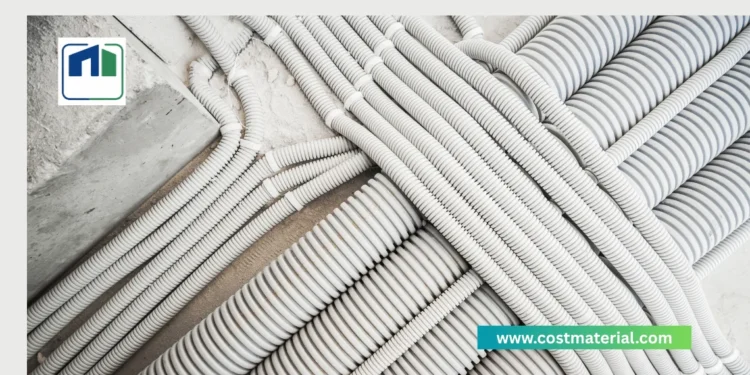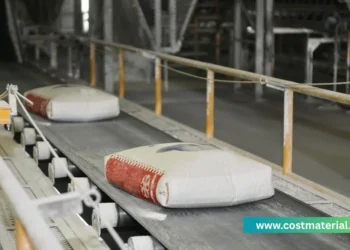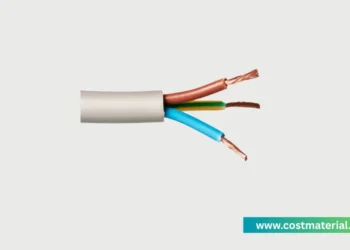Flexible conduits are essential in electrical installations, providing protection for wires while allowing easy routing in tight spaces. Whether you’re a contractor, electrician, or DIY enthusiast, knowing the latest prices helps in budgeting and procurement. In this blog post you will learn the updated flexible conduit price list in the Philippines for the year 2024. But we will discuss first what is flexible conduit, its different type, uses and importance.
Flexible Conduits: The Unsung Heroes of Electrical Wiring Systems
In the world of electrical installations, flexible conduits serve as the protective armor for wiring systems, ensuring safety while providing much-needed adaptability. These versatile tubing solutions have become indispensable in both residential and commercial settings across the Philippines, offering a perfect balance between protection and installation flexibility. Unlike their rigid counterparts that require precise measurements and multiple fittings, flexible conduits can effortlessly navigate around obstacles, through tight spaces, and along curved pathways, making them the go-to choice for electricians and DIY enthusiasts alike.
Understanding Flexible Conduits and Their Varieties
The market offers several types of flexible conduits, each designed to meet specific environmental and electrical requirements:
PVC Flexible Conduits remain the most popular choice for general-purpose wiring in Philippine homes and offices. Their lightweight nature, combined with excellent corrosion resistance and affordability, makes them ideal for indoor applications. However, standard PVC conduits may degrade under prolonged UV exposure, requiring UV-stabilized versions for outdoor use.
Corrugated Conduits feature a distinctive ribbed design that enhances flexibility while maintaining structural integrity. These come in both plastic and nylon variations, with the latter offering superior resistance to oils and chemicals. Many electricians prefer these for low-voltage installations and data cabling where frequent bending might be required.
Liquid-Tight Flexible Conduits represent the heavy-duty solution for challenging environments. With their waterproof outer jacket and often reinforced construction, they excel in outdoor installations, industrial settings, and areas prone to moisture exposure like kitchens, bathrooms, and pool areas.
Metallic Flexible Conduits provide the highest level of mechanical protection. Made from interlocked galvanized steel or aluminum, these conduits safeguard wiring in high-risk areas where cables might face crushing, abrasion, or extreme temperatures. They’re particularly valuable in industrial plants and commercial kitchens.
Practical Applications in the Philippine Context
The versatility of flexible conduits shines through in their numerous applications:
In residential projects, they protect wiring running through concrete walls, under floors, and across ceiling spaces while accommodating the natural movement of buildings. This proves especially valuable in Philippine homes where space constraints often demand creative wiring solutions.
Commercial establishments benefit from their use in false ceilings and raised floors, where accessibility for future maintenance remains crucial. The conduit’s flexibility allows for easier modifications when office layouts change.
Industrial facilities rely on specialized conduits to withstand harsh conditions – from chemical plants requiring corrosion-resistant options to manufacturing floors needing crush-proof protection for exposed wiring.
Outdoor applications like garden lighting, perimeter security systems, and signage installations demand weatherproof conduits that can handle the Philippines’ tropical climate, with its intense sunlight and heavy rainfall.
Why Flexible Conduits Matter in Electrical Safety
The importance of proper conduit selection cannot be overstated when it comes to electrical safety:
Physical Protection: Conduits shield wires from accidental damage during construction and everyday use, preventing potentially dangerous exposures.
Environmental Shielding: They guard against moisture, dust, chemicals, and pests that could compromise wiring integrity.
Fire Prevention: Quality conduits can contain electrical fires and prevent them from spreading through walls and ceilings.
Electromagnetic Interference Reduction: Certain metallic conduits help minimize interference in sensitive electronic equipment.
Future-Proofing: They allow for easier upgrades and additions to electrical systems without major demolition work.
When selecting conduits for Philippine projects, consider factors like the installation environment (indoor/outdoor), cable capacity needs, material compatibility with surrounding structures, and compliance with the Philippine Electrical Code. Proper installation techniques, including the use of appropriate fittings and support intervals, ensure optimal performance and longevity of the electrical system.
As electrical standards continue to evolve and building designs become more complex, the role of flexible conduits in creating safe, adaptable, and maintenance-friendly wiring systems will only grow more significant. Whether you’re renovating a Manila condo or wiring a new commercial complex in Cebu, choosing the right flexible conduit can make all the difference in your project’s success and long-term reliability.
Flexible Conduit Price List 2024 in the Philippines
Below is a comprehensive price table for light-type flexible conduits available in the Philippines as of 2024. Prices may vary slightly depending on location and supplier promotions.
| Specification | Unit | Price (PHP) |
|---|---|---|
| PVC Flexible Conduit (1/2") | per meter | ₱35 - ₱50 |
| PVC Flexible Conduit (3/4") | per meter | ₱45 - ₱65 |
| PVC Flexible Conduit (1") | per meter | ₱60 - ₱85 |
| PVC Flexible Conduit (1.5") | per meter | ₱90 - ₱120 |
| PVC Flexible Conduit (2") | per meter | ₱130 - ₱170 |
| Corrugated PVC Conduit (1/2") | per meter | ₱25 - ₱40 |
| Corrugated PVC Conduit (3/4") | per meter | ₱35 - ₱55 |
| Corrugated PVC Conduit (1") | per meter | ₱50 - ₱75 |
| Liquid-Tight Flexible Conduit (1/2") | per meter | ₱80 - ₱110 |
| Liquid-Tight Flexible Conduit (3/4") | per meter | ₱100 - ₱140 |
| Liquid-Tight Flexible Conduit (1") | per meter | ₱150 - ₱200 |
Need an Excel copy of this table? Download here
When using the 2024 flexible conduit price list provided in this guide, it’s important to understand the scope, limitations, and factors that may affect the actual cost. Below is a breakdown of what’s included, excluded, and key considerations when using this pricing data.
✅ Inclusions in the Price List
Base Material Cost
Prices cover standard PVC, corrugated, and liquid-tight flexible conduits from reputable brands.
Includes common sizes (½”, ¾”, 1”, 1.5”, 2”).
Per-Meter Pricing
Most prices are listed per meter, the standard retail unit for flexible conduits.
Brand Variations
Accounts for price differences between budget brands (generic PVC) and premium brands (Royu, PPI, Philflex).
Major Hardware Suppliers
Prices sourced from Wilcon, Citi Hardware, Ace Hardware, Meralco Store, and other verified suppliers.
❌ Exclusions in the Price List
Installation Labor Costs
Prices do not include electrician fees or installation expenses.
Fittings & Accessories
Couplings, connectors, junction boxes, and clamps are priced separately.
Shipping & Delivery Fees
If ordering online or in bulk, transportation costs may apply (especially for provincial deliveries).
Taxes & Additional Charges
Some stores may add VAT (12%) or service fees (not reflected in base prices).
Promo Discounts
Seasonal sales (e.g., 3.3, 6.6, 11.11, Christmas promos) may lower costs temporarily.
⚠️ Key Considerations When Using This Price List
Regional Price Differences
Metro Manila prices may be 5-15% higher than provincial rates due to logistics.
Bulk Purchase Discounts
Contractors buying 50+ meters may get 5-10% discounts (negotiable with suppliers).
Material Quality & Certification
Cheaper conduits may lack fire resistance or UV protection—check for PS/ICC marks for safety compliance.
Inflation & Supply Chain Fluctuations
Prices may change due to raw material costs (oil prices for PVC) or global supply issues.
Alternative Brands
Some stores carry imported conduits (e.g., Panduit, HellermannTyton), which may cost 20-30% more than local brands.
Final Note
This price list serves as a general reference (updated as of 2024). For exact quotes, contact suppliers directly and request a formal quotation, especially for large projects.
Did you find this guide helpful? Share it with fellow builders and contractors! For more construction material price lists, check our other blogs.





